#Laurence Kerr Olivier
Text
11 luglio … ricordiamo …
11 luglio … ricordiamo …
#semprevivineiricordi #nomidaricordare #personaggiimportanti #perfettamentechic
2021: Renée Deneuve, all’anagrafe Jeanne-Renée Deneuve, attrice teatrale e doppiatrice francese. Era la madre delle attrici Catherine Deneuve e Françoise Dorléac. Si sposò con l’attore Aimé Clariond, da cui ebbe una figlia, Danielle. In seguito si sposò con l’attore Maurice Dorléac, dal quale ebbe le celebri attrici Françoise Paulette Louise Dorléac, Catherine Fabienne Dorléac nota come Catherine…
youtube
View On WordPress
#11 luglio#Barnard Hughes#barone Olivie#Bernard Aloysius Kiernan Hughes#Claudia Alta Taylor Johnson#Dorothy Hart#Eddie Dillon#Edward Dillon#Evelyn Varden#Frances Langford#George Gershwin#Gisella Passarelli#Jacob Bruskin Gershowitz#Jeanne-Renée Deneuve#King Baggot#King Baggott#Lady Bird Johnson#Laurence Kerr Olivier#Laurence Olivier#Michele Montanari#Morti 11 luglio#Olafr Havrevold#Ray Collins#Renée Deneuve#Robert Bushnell Ryan#Robert Ryan#Talitha Dina Pol#Talitha Getty#Teodosio Barresi#Youtube
0 notes
Text



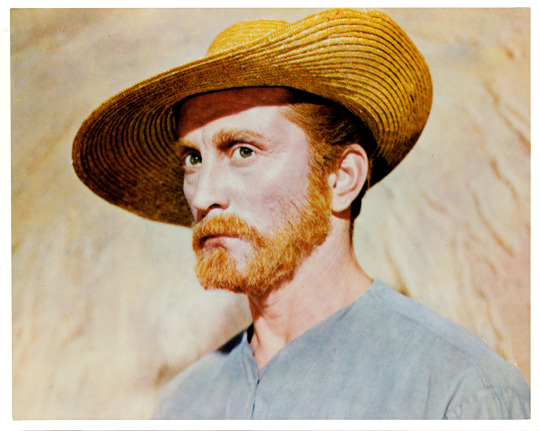

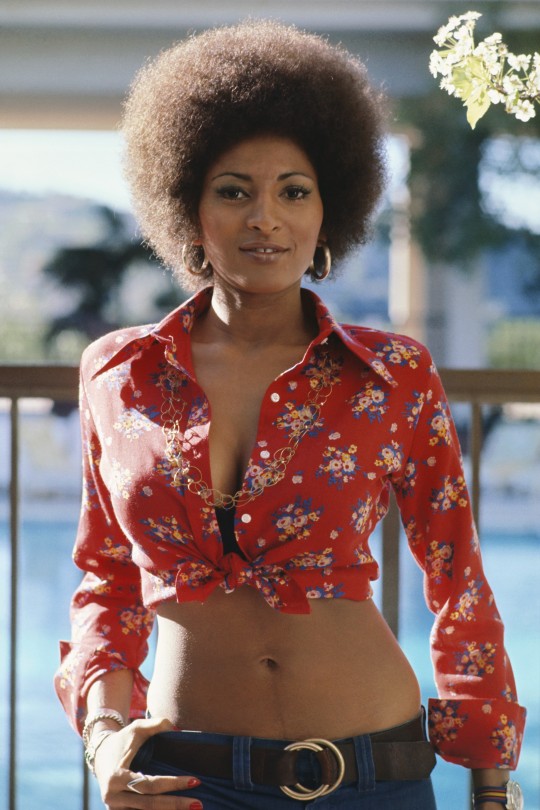
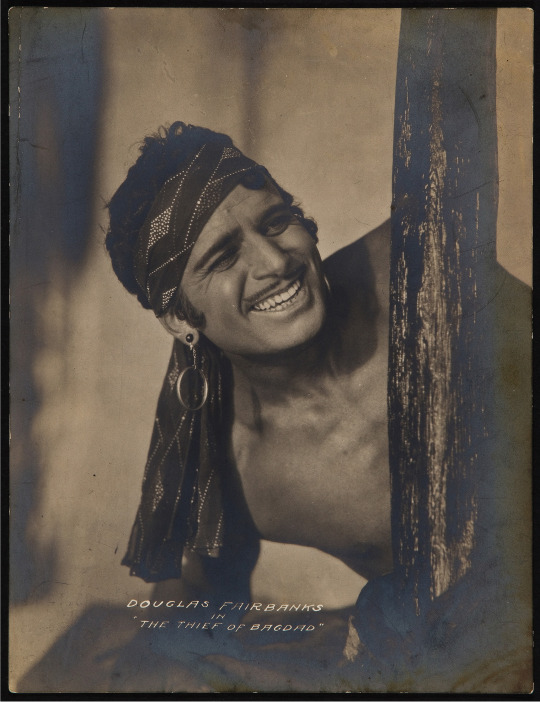


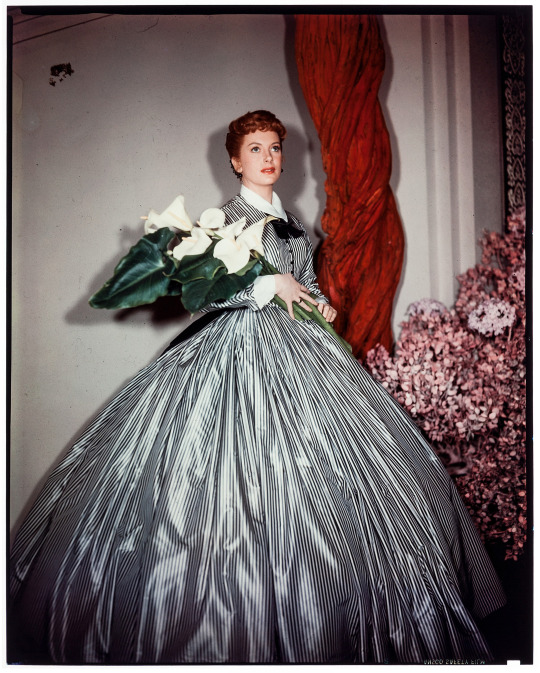

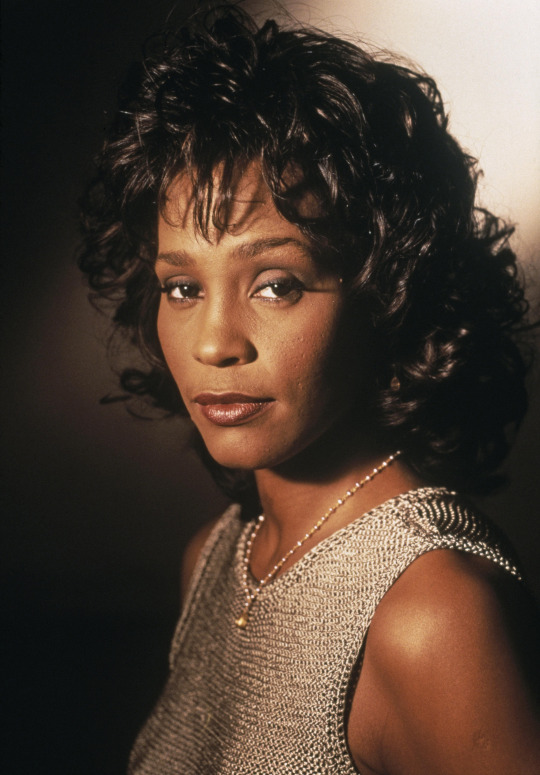


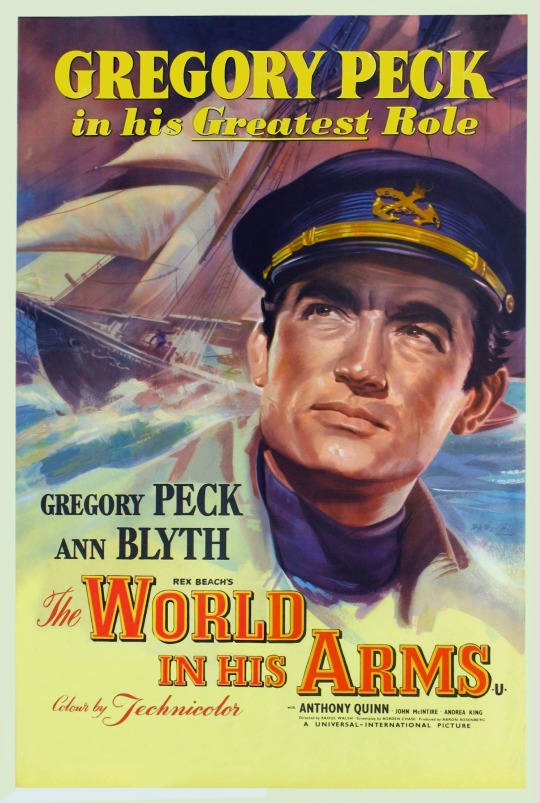
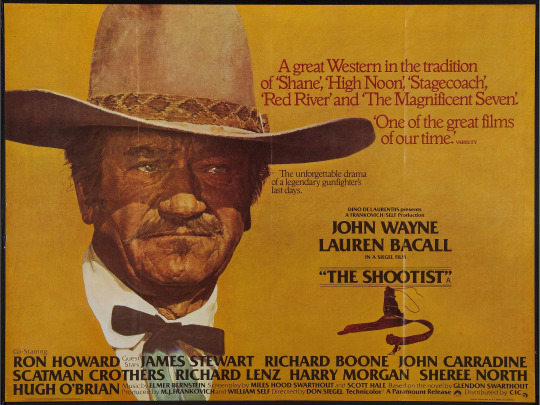



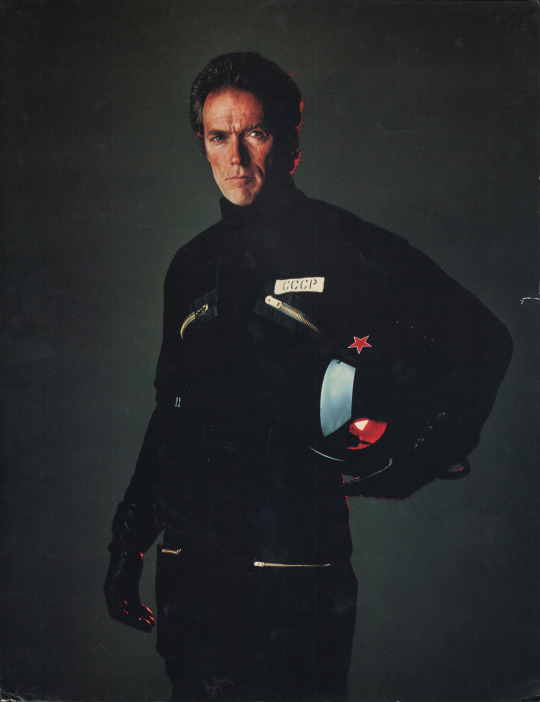

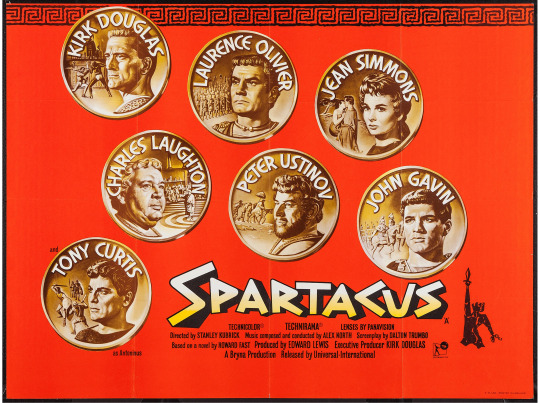
#laurence olivier#sean connery#kirk douglas#goldie hawn#douglas fairbanks#deborah kerr#marlon brando#whitney houston#gary cooper#humphrey bogart#gregory peck#john wayne#clint eastwood
5 notes
·
View notes
Note
i love your blog! was vivien leigh friends with any other hollywood actresses?
Thank you so much! And, indeed she was- off the top of my head, I know she and Katharine Hepburn were close enough for Kate to have been her Maid of Honor in Vivien's wedding to Laurence Olivier. I also recall George Cukor and Kate finding a suitable house for Vivien to rent during the filming of Ship of Fools, if memory serves me correctly? She and Deborah Kerr enjoyed a somewhat regular correspondence, I know she and Ava Gardner met at least once and were very mutually complimentary, and there's a few candids of her with Lauren Bacall. I know someone who ran a Joan Crawford fan account mentioned to me that she and Joan were telephone friends, and I didn't do too much digging to determine if this was true- one way or the other- but I know there's a picture that exists of the two of them, that Vivien's number was in Joan's telephone book, and Joan had known Larry since at least the early 1930s through Douglas Fairbanks Junior. Bette Davis was a guest in Vivien's home for at least one weekend. There's loads of other ones I'm forgetting at the moment, but @divinevivienleigh is the best resource imaginable for all things Vivien!
18 notes
·
View notes
Text
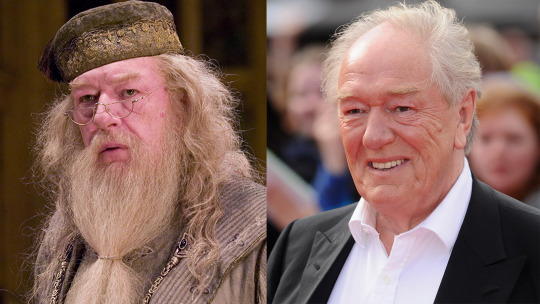
Sir Michael John Gambon CBE (/ˈɡæmbɒn/; October 19, 1940 – September 27, 2023) Film, stage and television actor. Gambon started his acting career with Laurence Olivier as one of the original members of the Royal National Theatre. Over his six-decade-long career, he received three Olivier Awards, two Screen Actors Guild Awards, and four BAFTA Awards. In 1998, he was knighted by Queen Elizabeth II for services to drama. Gambon enhanced his stardom through his role of Albus Dumbledore in the Harry Potter film series from 2004 to 2011, replacing Richard Harris following his death in 2002.
For his work on television, he received four BAFTA Awards for The Singing Detective (1986), Wives and Daughters (1999), Longitude (2000), and Perfect Strangers (2001). He also received two Primetime Emmy Award nominations for Path to War (2002) and Emma (2009). Other notable projects include Cranford (2007) and The Casual Vacancy (2015). In 2017, he received the Irish Film & Television Academy Lifetime Achievement Award.
In 1967, he made his television debut in the BBC television adaptation of Much Ado About Nothing as Watchman No. 4. He also appeared in British programmes such as Softly, Softly (1967), and Public Eye (1968). From 1968 to 1970, he featured in the BBC historical series The Borderers as Gavin Kerr. He also had a recurring role in the Canadian series The Challengers (1972). He also appeared in drama anthology series including Play for Today, Play of the Month, and ITV Playhouse.
His craggy looks soon made him into a character actor. For his lead role in Dennis Potter's The Singing Detective (1986) he won his first British Academy Television Award for Best Actor. He starred as detective Inspector Jules Maigret in an ITV adaptation of twelve of Georges Simenon's books. In 1990, he played Jerry in Harold Pinter's Betrayal for BBC Radio 3. In 1991, he starred as Tommy Hanbury in an episode of the ITV series Minder called "Look Who's Coming To Pinner". He also appeared in the BBC serial Wives and Daughters (1999) based on the Victorian novel by the same name by Elizabeth Gaskell. He portrayed Squire Hamley and received his second BAFTA Award nomination and win for Best Actor. (Wikipedia)
IMDB Listing
#Sir Michael Gambon#TV#Obit#Obituary#O2023#The Singing Detective#Wives and Daughters#Longitude#Emma#Cranford#Path to War#Maigret
10 notes
·
View notes
Text
Old Hollywood dream-cast for a Tudor period drama
Henry VIII -> Orson Welles
Cardinal Wolsey -> Lionel Barrymore
Thomas Cromwell -> Laurence Olivier
Catherine of Aragon -> Deborah Kerr
Anne Boleyn -> Ava Gardiner
Jane Seymour -> Norma Shearer
Anne of Cleves -> Lauren Bacall
Catherine Howard -> Ann Sheridan
Catherine Parr -> Ingrid Bergman
Bessie Blount -> Ona Munson
Mary Boleyn -> Lana Turner
1 note
·
View note
Text
Sir Laurence Olivier photographed in 1987.

Laurence Kerr Olivier, Baron Olivier 22. Mai 1907 als Laurence Kerr Olivier in Dorking, Surrey, England; † 11. Juli 1989 in Steyning, West Sussex, England war ein britischer Schauspieler, Regisseur, Produzent und Theaterleiter. Der vierfache Oscar-Preisträger wird als einer der größten englischsprachigen B��hnen- und Filmdarsteller des 20. Jahrhunderts angesehen.
1 note
·
View note
Text

Laurence Olivier, in full Laurence Kerr Olivier, Baron Olivier of Brighton, also called (1947–70) Sir Laurence Olivier, (born May 22, 1907, Dorking, Surrey, England—died July 11, 1989, near London, England), a towering figure of the British stage and screen, acclaimed in his lifetime as the greatest English-speaking actor of the 20th century. He was the first member of his profession to be elevated to a life peerage.
1 note
·
View note
Text
Aout MMXXIII
Films
L'Appel de la forêt (The Call of the Wild) (2020) de Chris Sanders avec Harrison Ford, Omar Sy, Karen Gillan, Dan Stevens et Bradley Whitford
Indiscret (Indiscreet) (1958) de Stanley Donen avec Cary Grant, Ingrid Bergman, Cecil Parker, Phyllis Calvert et David Kossoff
Jojo Rabbit (2019) de Taika Waititi avec Scarlett Johansson, Roman Griffin Davis, Thomasin McKenzie, Taika Waititi, Sam Rockwell et Rebel Wilson
Le Verdict (The Verdict) (1982) de Sidney Lumet avec Paul Newman, Charlotte Rampling, Jack Warden, James Mason, Milo O'Shea, Lindsay Crouse et Ed Binns
Mondwest (Westworld) (1973) de Michael Crichton avec Yul Brynner, Richard Benjamin, James Brolin, Dick Van Patten, Anne Randall, Majel Barrett et Terry Wilson
La Grande Lessive (!) (1968) de Jean-Pierre Mocky avec Bourvil, Francis Blanche, Roland Dubillard, Jean Tissier, Michael Lonsdale, R. J. Chauffard, Jean Poiret, Karyn Balm et Alix Mahieux
La Traversée de Paris (1956) de Claude Autant-Lara avec Jean Gabin, Bourvil, Louis de Funès, Jeannette Batti, Georgette Anys, Robert Arnoux, Laurence Badie et Myno Burney
Austerlitz (1960) d'Abel Gance avec Pierre Mondy, Jean Marais, Martine Carol, Elvire Popesco, Georges Marchal, Vittorio De Sica, Michel Simon, Rossano Brazzi, Claudia Cardinale et Leslie Caron
La Bride sur le cou (1961) de Roger Vadim avec Brigitte Bardot, Joséphine James, Mireille Darc, Edith Zetline, Michel Subor, Jacques Riberolles et Claude Brasseur
Hiroshima, mon amour (1959) d'Alain Resnais avec Emmanuelle Riva, Eiji Okada, Bernard Fresson, Stella Dassas et Pierre Barbaud
Quo vadis (1951) de Mervyn LeRoy avec Robert Taylor, Deborah Kerr, Leo Genn, Peter Ustinov, Patricia Laffan, Buddy Baer et Finlay Currie
La Classe américaine : Le Grand Détournement (1993) de Michel Hazanavicius et Dominique Mézerette avec Christine Delaroche, Evelyne Grandjean, Marc Cassot, Patrick Guillemin, Raymond Loyer, Joël Martineau, Jean-Claude Montalban, Roger Rudel et Gérard Rouzier
Beethoven 3 (Beethoven's 3rd) (2000) de David M. Evans avec Judge Reinhold, Julia Sweeney, Joe Pichler, Michaela Gallo, Mike Ciccolini, Jamie Marsh et Danielle Keaton
The Big Short (2015) d'Adam McKay avec Christian Bale, Steve Carell, Ryan Gosling, Brad Pitt, Melissa Leo, Rafe Spall et Marisa Tomei
GoldenEye (1995) de Martin Campbell avec Pierce Brosnan, Sean Bean, Izabella Scorupco, Famke Janssen, Joe Don Baker, Judi Dench, Robbie Coltrane, Tchéky Karyo et Alan Cumming
The Grand Budapest Hotel (2014) de Wes Anderson avec Ralph Fiennes, Tony Revolori, F. Murray Abraham, Saoirse Ronan, Mathieu Amalric, Adrien Brody, Willem Dafoe et Jeff Goldblum
Le Hussard sur le toit (1995) de Jean-Paul Rappeneau avec Juliette Binoche, Olivier Martinez, Claudio Amendola, Isabelle Carré, François Cluzet, Jean Yanne : le colporteur juif et Pierre Arditi
Heat (1995) de Michael Mann avec Al Pacino, Robert De Niro, Val Kilmer, Tom Sizemore, Diane Venora, Amy Brenneman, Dennis Haysbert, Ashley Judd, Mykelti Williamson et Natalie Portman
Excalibur (1981) de John Boorman avec Nigel Terry, Helen Mirren, Nicol Williamson, Cherie Lunghi, Nicholas Clay, Paul Geoffrey, Robert Addie, Gabriel Byrne, Patrick Stewart et Liam Neeson
Le Grand Chantage (Sweet Smell of Success) (1957) d'Alexander Mackendrick avec Burt Lancaster, Tony Curtis, Susan Harrison, Martin Milner, Sam Levene, Barbara Nichols et David White
Séries
Castle Saison 2, 3
Rire et Châtiment - Le Flic fantôme - La Guerre des cuisines - Doublement Mort - Espion d'un jour - Présumé coupable - Mort par prédiction - Rencontre avec le passé - Duel à l'ancienne - Anatomie d'un assassinat - Triple Tueur - Célèbre à tout prix
Happy Days Saison 1
Échec ou mat - La Première Bagnole - La Première Cuite de Richie - Une visite inattendue - Le Festival rock - Le Club des Démons - Fonzie vient dîner - Nuit au palace - Une rupture difficile - Qui perd gagne - Rendez-vous surprise - Le Tatouage de Richie - Richie et les beatniks - Le Garçon d'honneur - De la bagarre dans l'air - Un homme prudent
Inspecteur Barnaby Saison 11
Les Noces de sang - Fusillé à l'aube - L’assassin est servi - Macabres Découvertes - Une alliance maléfique - Le Crépuscule des héros - Le Mystère du bois des moines
Downton Abbey Saison 1, 2
Question de succession - Le Nouvel Héritier - Le Diplomate turc - Entre ambitions et jalousies - La Rumeur se propage - La Fiancée de Matthew - L'Entraide - La Maison des intrigues - Portés disparus - Nouvelles Vies - Épidémie - L'Esprit de Noël
Affaires sensibles
Mai 68, le coup de théâtre du Général de Gaulle - Autoroutes françaises : la machine à cash - William Randolph Hearst : de Citizen Kane à Donald Trump - Orson Welles - La guerre des mondes - François Fillon et le "Pénélopegate" - Contrat Première Embauche, mieux que rien ou pire que tout ? - 31 août 1997 : mort d'une princesse anglaise
Kaamelott Livre II
Spangenhelm - Les Alchimistes - Le Dialogue de Paix - Le Portrait - Silbury Hill - Le Reclassement - Le Rassemblement du Corbeau - Les Volontaires II - Le Terroriste - La Chambre - Le Message Codé - La Délégation Maure - L’Enlèvement de Guenièvre - Les Classes de Bohort - Le Monde d’Arthur - Les Tuteurs - Les Jumelles du Pêcheur - Sept Cent Quarante-Quatre - L'Absolution - Les Misanthropes - La Cassette - Plus Près de Toi - La Révolte - Sous les Verrous - Séli et les Rongeurs - Un Roi à la Taverne II - L'Ancien Temps - Le Passage Secret - Les Mauvaises Graines - La Garde Royale - L'Ivresse - Mater Dixit - Spiritueux - La Ronde - Merlin l'Archaïque - Les Exploités - L’Escorte II - Le Larcin - La Rencontre - Les Pigeons - O'Brother - La Fête du Printemps - La Voix Céleste - L'Invincible - Amen - Le Cadeau - Le Complot - La Vigilance d’Arthur - Les Chiens de Guerre - Always - Arthur in Love - Excalibur et le Destin - L'Absent - The Game - La Quinte Juste - La Fumée Blanche - Unagi II La Joute Ancillaire - Le Donneur - Le Jeu du Caillou - L'Alliance - Le Secret d'Arthur - Aux Yeux de Tous - Immaculé Karadoc - La Morsure du Dace - Les Neiges Eternelles - Des Hommes d'Honneur - Stargate - Feue la Vache de Roparzh - Les Vœux - Le Pédagogue - Perceval et le Contre-Sirop - L'Oubli - L'Ambition - Le Poème - Corpore Sano - Le Havre de Paix - L'Anniversaire de Guenièvre - La Botte Secrète II - Les Parchemins Magiques - L'Enragé - Trois Cent Soixante Degrés - Pupi - Vox Populi II - Le Rebelle - Les Félicitations - Les Paris - Les Esclaves - Les Drapeaux - Le Guet - Le Sort Perdu - La Restriction - La Corde - Le Tourment II - Le Plat National - Le Temps des Secrets - La Conscience d'Arthur - La Frange Romaine - L'Orateur - Les Comptes
Le Coffre à Catch
#127 : Dream Match + Kozlov : J'en ai rêvé, Teddy l'a fait ! - #128 : La ECW et Mark Henry nous gâtent de cadeaux ! - #129 : Le pire main event de la ECW : Agius pète un câble ! - #130 : On démarre l'année ECW 2009 avec le Connard du Catch ! - [LIVE] Coffre à Catch Hors-série : ECW December to Dismember
Columbo Saison 1
Accident
Idéfix et les Irréductibles
Labienus tu m'auras pas - Une affaire corsée - Turbine encrassée - Une Ibère dans la ville
Biographies WWE Saison 1
Bret "The Hitman" Hart
Batman, la série animée Saison 1
Les Enfants de la nuit - Version originale - Les Oubliés du Nouveau Monde - Fugue en sol Joker
Spectacles
One Night Only : The Bee Gees Live in Las Vegas (1997)
Livres
Vies des douze Césars de Suétone
Détective Conan : Tome 12 de Gôshô Aoyama
Détective Conan : Tome 13 de Gôshô Aoyama
Hero Corp Tome 3 : Chroniques - Partie II de Simon Astier et Francesca Follini
Les 7 prochaines vies de Greta Thunberg : Que sera, dans vingt cinq ans, Greta devenue ? de Fréville
0 notes
Photo

Laurence Olivier
#Laurence Olivier#TCM#actor#vintage#Hollywood#film#classic#handsome#talent#Shakespeare#Laurence Kerr Olivier#Baron Olivier#stage#movie#theater#television#Wuthering Heights#Rebecca#knighthood#Hamlet#life peerage#Order of Merit#marriage#Vivien Leigh#wife#Joan Plowright#Pride and Prejudice#That Hamilton Woman#play#The Entertainer
22 notes
·
View notes
Text
"We live and learn - and may die to forget it all."
KENNETH WILLIAMS
* 22 February 1926 ✝ 15 April 1988
Britain's incomparably quick-witted actor, comedian, queer icon, author, diarist and raconteur par excellence ... gone too soon and still truly missed.
Rest in peace, my angel ... I'll always love you! 💕
You taught me how light carries on endlessly even after death ...
music: "My Way" performed by Tom Gaebel & WDR Funkhausorchester (2009)
Some of Ken's major professional companions and/or very close friends in order of their appearance in the clip:
Stanley Baxter, Sir Laurence Olivier, Orson Welles, Maggie Smith, Tony Hancock, Bill Kerr, Sid James, Fenella Fielding, Joan Sims, Jim Dale, Kenneth Horne, Hugh Paddick, Joe Orton, Barbara Windsor, the Carry On troupe including amongst the others, Hattie Jacques and Charles Hawtrey, Nicholas Parsons, Clement Freud, Derek Nimmo, Sheila Hancock, Ingrid Bergman, Peter Rogers (producer of the Carry Ons), Nanette Newman, Miriam Margolyes, Lance Percival, Lorraine Chase, and last but not least, his best chum Gordon Jackson.
#Kenneth Williams#rememberance#15 April 1988#day of death#a tribute K.C.W.#comedy legend ☆#jeez I cried so hard while I was creating this video! 😭#Rest in peace my prince ... I miss you so much!!!!! 🥺💔#my video#my edits#queer#queer history#gay#ace#lgbqt+
11 notes
·
View notes
Text
11 luglio … ricordiamo …
11 luglio … ricordiamo …
#semprevivineiricordi #nomidaricordare #personaggiimportanti #perfettamentechic #felicementechic #lynda
2010: Gisella Passarelli, giornalista, poetessa e scrittrice italiana. Visse ed operò perlopiù a Milano, ottenendo vari riconoscimenti e premi giornalistici e di poesia. (n. 1913)
…Poesia poesia dove mi conduci
a meditare con
l’abito della gioia
e lo smarrimento
dell’essere
quando tutto accade
fra notte e giorno
e tu intingi la penna
nella tua ispirazione
e segni un punto
nell’iride del sole
e…
youtube
View On WordPress
#11 luglio#Barnard Hughes#barone Olivie#Bernard Aloysius Kiernan Hughes#Dorothy Hart#Eddie Dillon#Edward Dillon#Evelyn Varden#Frances Langford#George Gershwin#Gisella Passarelli#Jacob Bruskin Gershowitz#King Baggot#King Baggott#Laurence Kerr Olivier#Laurence Olivier#Michele Montanari#Morti 11 luglio#Olafr Havrevold#Ray Collins#Robert Bushnell Ryan#Robert Ryan#Talitha Dina Pol#Talitha Getty#Youtube
1 note
·
View note
Text
OLD HOLLYWOOD STARS & THEIR ZODIAC SIGNS
Aries: Gregory Peck, Spencer Tracy, Bette Davis, Joan Crawford, William Holden, Doris Day, Anthony Perkins, Debbie Reynolds, Ann Miller, Billie Holiday, Karl Malden, Warren Beatty, Marlon Brando, Charlie Chaplin, Mary Pickford, Lon Chaney, Steve McQueen, Ed Begley, Melvyn Douglas, Alec Guinness, Leslie Howard, Jayne Mansfield
Taurus: Jimmy Stewart, Fred Astaire, Bing Crosby, Audrey Hepburn, Katharine Hepburn, Don Rickles, Orson Welles, Tyrone Power, Rudolph Valentino, Gary Cooper, Henry Fonda, Shirley MacLaine, Shirley Temple, Anthony Quinn, James Mason, Ella Fitzgerald, Lionel Barrymore, Phil Silvers, Jack Klugman, Harold Lloyd, Mary Astor, Simone Simon, Margaret Sullavan, Eve Arden
Gemini: Judy Garland, Bob Hope, Dean Martin, Errol Flynn, Laurence Olivier, Marilyn Monroe, John Wayne, Tony Curtis, Rosemary Clooney, Douglas Fairbanks, Burl Ives, Al Jolson, Stan Laurel, Vincent Price, Basil Rathbone, Rosalind Russell, Hattie McDaniel, Priscilla Lane, Josephine Baker, Jeanette MacDonald, Peggy Lee
Cancer: Ginger Rogers, Eva Marie Saint, Natalie Wood, Olivia de Havilland, Barbara Stanwyck, Lena Horne, Jimmy Cagney, Milton Berle, Yul Brynner, Peter Lorre, Red Skelton, Jane Russell, Gina Lollobrigida, Leslie Caron, Farley Granger
Leo: William Powell, Myrna Loy, Mae West, Clara Bow, Norma Shearer, Esther Williams, Walter Brennan, Robert Mitchum, Louis Armstrong, Peter O’Toole, Jack Haley, Bert Lahr, Alfred Hitchcock, Maureen O’Hara, Lucille Ball, Shelley Winters, Dolores del Rio
Virgo: Lauren Bacall, Gene Kelly, Sophia Loren, Claudette Colbert, Greta Garbo, Donald O’Connor, Ingrid Bergman, Peter Lawford, Fredric March, James Coburn, Fred MacMurray, Peter Sellers, Raquel Welch, George Chakiris, Vera Miles
Libra: Jean Arthur, Carole Lombard, Montgomery Clift, Rita Hayworth, Deborah Kerr, Charlton Heston, Mickey Rooney, Lillian Gish, Groucho Marx, Buster Keaton, Bela Lugosi, George C. Scott, Lenny Bruce, Walter Pidgeon, Greer Garson, Joan Fontaine, Brigitte Bardot, June Allyson, Julie London
Scorpio: Richard Burton, Rock Hudson, Vivien Leigh, Burt Lancaster, Gene Tierney, Grace Kelly, Claude Rains, Joel McCrea, Johnny Carson, Burgess Meredith, Hedy Lamarr, Eleanor Powell, Veronica Lake
Sagittarius: Frank Sinatra, Kirk Douglas, Sammy Davis Jr, Edward G. Robinson, Rita Moreno, Lee Remick, Boris Karloff, Lee J. Cobb, Ricardo Montalban, Irene Dunne, Agnes Moorehead, Gloria Grahame, Betty Grable, Julie Harris
Capricorn: Cary Grant, Humphrey Bogart, Ava Gardner, Marlene Dietrich, Loretta Young, Ethel Merman, Eartha Kitt, Janet Leigh, Lew Ayres, Ray Bolger, Sal Mineo, Danny Kaye, Oliver Hardy, Oscar Levant, Ray Milland, Elvis Presley, Jane Wyman, Kay Francis, Barbara Rush
Aquarius: Kathryn Grayson, James Dean, Paul Newman, Clark Gable, Jimmy Durante, Jack Benny, Lana Turner, Kim Novak, Ronald Colman, Ernest Borgnine, Randolph Scott, Vera-Ellen, Donna Reed, Jack Lemmon, John Barrymore, George Burns, Arthur Kennedy, Cesar Romero, Jean Simmons, Zsa Zsa Gabor
Pisces: Jerry Lewis, Elizabeth Taylor, Jean Harlow, Nat King Cole, Sidney Poitier, Cyd Charisse, Lee Marvin, Jackie Gleason, Edward Everett Horton, David Niven
#us earth signs stay winning#i'm a taurus just for reference#LOL#old hollywood#tag#zodiac signs#zodiac tag#astrology#vintage#old hollywood zodiac signs#jimmy stewart#audrey hepburn#katharine hepburn#classic hollywood#movie stars#humphrey bogart#star signs#aries#taurus#gemini#cancer#leo#virgo#libra#scorpio#sagittarius#capricorn#aquarius#pisces#cary grant
276 notes
·
View notes
Text
scandalous star: sir laurence olivier -an analysis
“I take a simple view of life: keep your eyes open and get on with it.” - Laurence Olivier
Before Ralph Fiennes and Kenneth Branagh, it was Sir Laurence Olivier who was the actor’s actor, the penultimate classical Shakespearean interpreter without peer. He wed the gravitas of a classically trained thespian with the dashing charisma of a modern movie star. Knighted in 1947, raised to life peerage in 1970, he was, in art as well as title, a princely lord of his profession. Lord Olivier was a performer of astonishing virtuosity and daring. Along with Sir Ralph Richardson and Sir John Gielgud, he was part of the “holy trinity” of actors who dominated the British stage in the mid-20th century. Olivier also translated his stage prowess to the film, acting in such classics as Wuthering Heights. As accomplished as he was in both mediums, the theater was Olivier's natural domain in the same way that a lion belongs rightfully in the jungle. Much was and still is made of his relationships and marriages, not least of all to his most famous wife, Vivien Leigh, who was an accomplished actress in her own right. But outside of this, he was a master at his craft, who commanded audiences on both the American and his native British coasts. To me, it was Olivier's interpretative originality that made him a great actor. He was no intellectual (as Orson Welles infamously said) but his microscopic attention to minutiae (Virgo moon) and a Sherlockian fascination with physical detail (Taurus sun) were part of the complex weaponry that made him such a great actor. One could elevate Sir John for his poetic bearing and voice and Sir Ralph for his gift for eccentric characterizations, but neither they nor any of their contemporaries could match Lord Olivier in matters of boldness and bravery. Later on in his career, his boldness and bravery continued; it was his willingness to lead from the front, and the forward thinking to take on board young directors such as William Gaskill and John Dexter as associates, that manifested in him founding the National Theater of Britain, becoming its first artistic director. Thirty years after his death, Olivier rightfully remains one of the most famous and revered actors of all time.

Laurence Olivier, according to astrotheme, was a Taurus sun and Virgo moon. Laurence was born in Dorking, Surrey, England, the third child of Gerard Kerr Olivier, a minister, and Agnes Crookenden. Olivier was devoted to his mother, but not to his father, whom he found a cold and remote parent. Nevertheless, he learned a great deal of the art of performing from him, and as a child Olivier imitated the forceful sermons he saw his father give. His mother encouraged him to learn and recite dramatic speeches from plays instead. His mother died when he was 12 years old; devastated, he used fantasy and his imagination to cope. His family had no theatrical connections, but Olivier's father, a clergyman, decided that his son should become an actor. Olivier passed the singing examination for admission to the choir school of All Saints, Margaret Street, in central London. In a school production of Julius Caesar in 1917, the ten-year-old Olivier's performance as Brutus impressed an audience that included great dignitaries of the stage. He later won praise in other schoolboy productions. After attending a drama school in London, Olivier learned his craft in a succession of acting jobs during the late 1920s.
He made his professional debut in 1926 as a policeman in ''The Ghost Train'' at the Brighton Hippodrome, and in his first entrance he tripped over a door sill and sailed headlong across the stage into the footlights. As he recalled, he received the largest laugh in his career. As a young actor, he was known for his penchant for giggling onstage. While playing the juvenile lead in Bird in Hand at the Royalty Theatre in June 1928, Olivier began a relationship with actress Jill Esmond, and subsequently got engaged. In 1930, with his impending marriage in mind, Olivier earned some extra money with small roles in two films: Murder for Sale, his film debut, in 1930 and Queen Christina in 1933, in which he was dismissed as Greta Garbo's leading man due to lack of chemistry and replaced by John Gilbert. He did not make another film until As You Like It in 1936. However dismal his film career was at the moment, his stage career was growing in leaps and bounds. In a month at the Old Vic, Olivier played Hamlet, Sir Toby Belch and Henry V, followed by Macbeth and Iago to Ralph Richardson's Othello. Olivier and Esmond married on 25 July 1930 and within weeks, they both realized they made a mistake. She had admitted to Olivier that she was in love elsewhere and could never love him as completely as he would wish. In 1930 Noël Coward cast Olivier as Victor Prynne in his new play Private Lives, which opened at the new Phoenix Theatre in London in September. In addition to giving the 23-year-old Olivier his first successful West End role, Coward became something of a mentor.
Following Olivier's success in Shakespearean stage productions, he made his first foray into Shakespeare on film in 1936, as Orlando in As You Like It. The following year Olivier appeared alongside Vivien Leigh in the historical drama Fire Over England. He had first met Leigh briefly at the Savoy Grill and then again when she visited him during the run of Romeo and Juliet, probably early in 1936, and the two had begun an affair sometime that year. Each was married, Leigh to Leigh Holman, Olivier to Miss Esmond. The romance became international gossip. For each, 1939 was a life-changing year. Miss Leigh won an Academy Award as Scarlett O'Hara in Gone With the Wind; Olivier acted in Wuthering Heights and the next year in Rebecca and Pride and Prejudice. Olivier later said that:
"I couldn't help myself with Vivien. No man could. I hated myself for cheating on Jill, but then I had cheated before, but this was something different. This wasn't just out of lust. This was love that I really didn't ask for but was drawn into."
On returning from Denmark, Olivier and Leigh told their respective spouses about the affair and that their marriages were over; Esmond moved out of the marital house and in with her mother. After Olivier's divorce in 1940, he and Leigh began a marriage that endured for 20 years despite conflicts and Leigh's insanity. In 1944, he returned to the Old Vic, as a co-director with Richardson and John Burrell. Among his first roles was Richard III, which he dated as the turning point in his career as an actor, the first time that his peers, the audience, the critics and the actor himself all admired him in a single role. Over the next four years Olivier spent much of his time working as a producer, presenting plays rather than directing or acting in them. His film Henry V began his trilogy of Shakespearean cinematic masterpieces, completed by Hamlet and Richard III, all directed by and starring Olivier in the title role. Hamlet won two Academy Awards - as best film and for Olivier as best actor. In 1961, he grew tired of Leigh’s craziness and soon divorced her. Soon after he and Leigh were divorced, Olivier married the much calmer Joan Plowright. In his lifetime, he won three Emmy awards for his television acting, and in 1978 he was given an honorary Academy Award for career achievement in films. For all of his success, Olivier felt a compulsion to break new ground, which he did, resoundingly, in John Osborne's Entertainer. After being ill for the last 22 years of his life, Olivier died of kidney failure in July 1989 at his home. His cremation was held three days later and his ashes were buried in Poets' Corner of Westminster Abbey during a memorial service in October that year.
Next, I’ll focus on another intense character, a larger-than-life icon and thee undisputed queen of the Mexican silver screen, widely considered “the most beautiful face in the history of Mexican cinema”: the amazing Aries María Félix.

STATS
birthdate: May 22, 1907
major planets:
Sun: Taurus
Moon: Virgo
Rising: Gemini
Mercury: Taurus
Venus: Aries
Mars: Capricorn
Midheaven: Aquarius
Jupiter: Cancer
Saturn: Pisces
Uranus: Capricorn
Neptune: Cancer
Pluto: Gemini
Overall personality snapshot: He was a perennial student of life, methodically adding to his skills, talents, security and enjoyment. He charted his future with a clear, rational grasp of what is necessary, and he laid foundations that were index-linked and geared to letting him enjoy the good things of life whilst never shirking his duties at work or at home. Enormously responsible, capable and blessed with lots of earthy charm, he aimed to do the right thing for himself and for loved ones – nothing pleased him more than serving those who depended upon him. One side of him was very fixed and self-assured: he knew himself and his needs and desires well, and he was confident in what he could do. He was also clear about what he did not want to do. Another side of him, however, tended to question and analyze himself, and doubts that he really got it right. This was the side that told him that he could always do a little bit better. He was a sticker, a veritable workaholic and persevering perfectionist, dedicated to high standards and sterling service. But he was also quite independent, and preferred to be able to choose when, where and for whom he worked. Ideally, he worked for himself, and he was a jolly hard taskmaster whose work was never done. Work and service is what he instinctively centered himself around, and yet it can at times weigh him down if he let himself get lost in the sea of details that he tried to master.
He was the great pragmatist. At home in the world of the senses, he was able to build up realistic priorities and a good sense of reality by dealing sequentially and logically with the things of this world that he could touch, taste, see and add up. As a result, he was an excellent organizer and managed many types of responsibilities admirably, from domestic arrangements, gardening, child-rearing and teaching to writing, dancing, painting, singing and running his own theater company. Her made it his business to know his medium inside out, and his professional approach inspires confidence in everyone. Essentially he aspired to a life of simplicity, usefulness and rational harmony. He needed to create something concrete and enduring, something that was morally sound, practical and contributed to the well-being of others, and something that was ultimately an expression of his own worth. When he was fully engaged in the purpose of his life, however quiet and humble it may appear to be, his love of excellence and of pleasure came together to create a warmly humorous, sharp-witted and innately wise personality whom others admired and respected.
He was the most youthful-looking of the zodiac with veritable Peter Pan looks. He had neat, sharp facial features and a wiry frame. He was lithe and agile with slender hands. He was quick-witted, decisive and competitive. He was practical, steady and patient, but he could be inflexible in his views. One thing he did have was plenty of common sense and good powers of concentration, although he tended to think that purely abstract thought was a waste of time. His thought processes weren’t as quick as others, but his decisions were made with a lot of thought behind them. He also had a gloriously resonant speaking-voice. He needed to be able to show his originality and independence in any job for complete satisfaction. He was capable of routine work, but ultimately found it too dull and boring. He needed scope for his inventiveness, because he was able to bring a fresh view to any job. He had trouble trusting those who had authority over him. He had an enormous hunger for human companionship, and he hoped that it’d fulfill all his desires. He needed love and emotion, and his sense of compassion led him to help others, as he was very protective. However he could sink down into the depths of self-pity at times, although normally he was of good humour. He didn’t react well to a hostile and competitive environment, in fact he preferred to stick to private endeavours where he could protect himself. He was quick to go on the defensive, rather than the offensive, when dealing with adversaries and adverse situations.
He had a strong sense of purpose and was very sincere. His shyness often prevented him from expressing himself properly, and he put great emphasis on emotional self-control, which made him more vulnerable than usual. At times, he was his own worst enemy, because he relived past errors over and over again, which gave him a negative outlook on life. He could be hypersensitive and moody, needing quiet and solitude. He belonged to a generation with a rational and logical attitude to life. There was a conflict between tradition and convention, and the experimental and unconventional. As an individual, he had to learn to strike a balance between the erratic and the conventional. As a member of his generation, he had the ability to come up with original ideas which could be of practical value. Members of his generation were emotionally sensitive and extremely conscious of the domestic environment and the atmosphere surrounding their home place. Also, as a member of the Cancer Neptune generation, he felt a degree of escapism from everyday reality, and was very sensitive to the moods of those around him. Olivier embodied all of these Cancer Neptunian ideals. As a Gemini Plutonian, he was mentally restless and willing to examine and change old doctrines, ideas and ways of thinking. As a member of this generation, he showed an enormous amount of mental vitality, originality and perception. Traditional customs and taboos were examined and rejected for newer and more original ways of doing things. As opportunities with education expanded, he questioned more and learned more. As a member of this generation, having more than one occupation at a time would not have been unusual to him.
Love/sex life: He was a man who knew exactly what he wanted from sex. Unfortunately, he seldom let himself have it. Even though his approach to sex was straightforward and forthright to the extreme, his energies were often misdirected and his efforts self-defeating. Love was often like a punishment for him. The good news: that’s the way he liked it. This explains why he suffered through a turbulent marriage to the volatile and, at times, mentally deranged Vivien Leigh. The really odd thing about his sexuality was his optimism. No matter how much trouble love brought him, he never lost his confidence or his taste for sexual adventure. He was among the most energetic and demonstrative of those who have Mars in Capricorn. He tended to be competitive and sometimes a little pushy where sex was concerned and he was not afraid to go after a challenging relationship. It was this ability to shake off the past and believe in love all over again that was his most charming quality. Of course, some might call it his most foolish quality.
minor asteroids and points:
North Node: Cancer
Lilith: Cancer
Vertex: Scorpio
Fortune: Libra
East Point: Taurus
Her North Node in Cancer dictated that he dictated that he needed to develop the more caring and compassionate side to his personality and try to place less emphasis on the materialistic aspects of his life. His Lilith in Cancer ensured that he was dangerously attracted to women who were too sensitive and resorted to nasty emotional manipulation, games, and pulled all sorts of shit to reclaim the power they felt they lost and he indulged in this behaviour as well. His Part of Fortune in Libra and Part of Spirit in Aries dictated that he needed to find fulfillment in striving to bring equilibrium and harmony to situations. His soul’s purpose was to use his strength and energy to be innovative and creative. East Point in Taurus dictated that he was more likely to identify with the need for pleasure (including the potential of liking himself) and comfort. His Vertex in Scorpio, 6th house dictated that, he had a desire or continual need for feeling irresistible and irreplaceable on all levels of intimacy, whether spiritual, intellectual, emotional, or physical. From the fires of hell to the heights of heaven, the further and deeper the range of interaction he could experience with another the more fulfilling. He had an attitude of duty, obligation and sacrifice when it came to heartfelt interactions. He could become hypochondriacal or martyristic to get the love he so desperately wanted. There was a need for others to appreciate the sincerity of his intentions, to the daily tasks he executed in a conscientious and caring way and for others to know that his actions, no matter how routine they may seem, were based on devoted love. The dark side was that when the reality of his partner does not fit this model (and it rarely did totally) he had a difficult time adjusting if faced with a breach of contract of any sort. Once badly hurt there was a tendency to become jaded and guarded in future relationships, thereby passing up the opportunity to explore interactions which might just fulfill out his intense needs perfectly.
elemental dominance:
earth
air
He was a practical, reliable man and could provide structure and protection. He was oriented toward practical experience and thought in terms of doing rather than thinking, feeling, or imagining. Could be materialistic, unimaginative, and resistant to change. But at his best, he provided the practical resources, analysis, and leadership to make dreams come true. He was communicative, quick and mentally agile, and he liked to stir things up. He was likely a havoc-seeker on some level. He was oriented more toward thinking than feeling. He carried information and the seeds of ideas. Out of balance, he lived in his head and could be insensitive to the feelings of others. But at his best, he helped others form connections in all spheres of their daily lives.
modality dominance:
mutable
He wasn’t particularly interested in spearheading new ventures or dealing with the day-to-day challenges of organization and management. He excelled at performing tasks and producing outcomes. He was flexible and liked to finish things. Was also likely undependable, lacking in initiative, and disorganized. Had an itchy restlessness and an unwillingness to buckle down to the task at hand. Probably had a chronic inability to commit—to a job, a relationship, or even to a set of values.
house dominants:
12th
8th
2nd
He had great interest in the unconscious, and indulged in a lot of hidden and secret affairs. His life was defined by seclusion and escapism. He had a certain mysticism and hidden sensitivity, as well as an intense need for privacy. He loved the totality of the human experience and embraced the whole cycle of human life, including birth, sex and death. His darker side, and the complexes and emotions that he preferred to keep hidden, even from himself was a theme throughout his life. His ability to undergo deep personal transformations and spiritual regeneration was also highlighted. The material side of life including money and finances, income and expenditure, and worldly goods was emphasized in his life. Also the areas of innate resources, such as his self-worth, feelings and emotions were paramount in his life. What he considered his personal security and what he desired was also paramount.
planet dominants:
Mercury
Uranus
Pluto
He was intelligent, mentally quick, and had excellent verbal acuity. He dealt in terms of logic and reasoning. It was likely that he was left-brained. He was restless, craved movement, newness, and the bright hope of undiscovered terrains. He was unique and protected his individuality. He had disruptions appear in his life that brought unpleasant and unexpected surprises and he immersed himself in areas of his life in which these disruptions occurred. Change galvanized him. He was inventive, creative, and original. He brought about complete and profound transformations in his life, good or bad. He felt the need to let go of what was familiar to him and accept new and different ways of being and doing things. There were areas in his life where he had to accept regeneration, which involved the destruction of the old and the creation of the new.
sign dominants:
Taurus
Gemini
Capricorn
His stubbornness and determination kept his around for the long haul on any project or endeavour. He was incredibly patient, singular in his pursuit of goals, and determined to attain what he wanted. Although he lacked versatility, he compensated for it by enduring whatever he had to in order to get what he wanted. He enjoyed being surrounded by nice things. He liked fine art and music, and may have had considerable musical ability. He also had a talent for working with his hands—gardening, woodworking, and sculpting. He was a physically oriented individual who took pride in his body. He ventured out to see what else was there and seized upon new ideas that expanded his community. His innate curiosity kept him on the move. He used his rational, intellectual mind to explore and understand his personal world. He needed to answer the single burning question in his mind: why? This applied to most facets of his life, from the personal to the impersonal. This need to know sent him off to foreign countries, where his need to explore other cultures and traditions ranked high. He was changeable and often moody. This meant that he was often at odds with himself—the mind demanding one thing, the heart demanding the opposite. To someone else, this internal conflict often manifested as two very different people. He was a serious-minded person who often seemed aloof and tightly in control of his emotions and her personal domain. Even as a youngster, there was a mature air about him, as if he was born with a profound core that few outsiders ever see. He was easily impressed by outward signs of success, but was interested less in money than in the power that money represents. He was a true worker—industrious, efficient, and disciplined. His innate common sense gave her the ability to plan ahead and to work out practical ways of approaching goals. More often than not, he succeeded at whatever he set out to do. He possessed a quiet dignity that was unmistakable.
Read more about him under the cut.
Laurence Olivier could speak William Shakespeare's lines as naturally as if he were "actually thinking them", said English playwright Charles Bennett, who met Olivier in 1927. Laurence Kerr Olivier was born in Dorking, Surrey, England, to Agnes Louise (Crookenden) and Gerard Kerr Olivier, a High Anglican priest. His surname came from a great-great-grandfather who was of French Huguenot origin.
One of Olivier's earliest successes as a Shakespearean actor on the London stage came in 1935 when he played "Romeo" and "Mercutio" in alternate performances of "Romeo and Juliet" with John Gielgud. A young Englishwoman just beginning her career on the stage fell in love with Olivier's Romeo. In 1937, she was "Ophelia" to his "Hamlet" in a special performance at Kronberg Castle, Elsinore, Denmark. In 1940, she became his second wife after both returned from making films in America that were major box office hits of 1939. His film was Wuthering Heights (1939), her film was Gone with the Wind (1939). Vivien Leigh and Olivier were screen lovers in Fire Over England (1937), 21 Days Together (1940) and That Hamilton Woman (1941).
There was almost a fourth film together in 1944 when Olivier and Leigh traveled to Scotland with Charles C. Bennett to research the real-life story of a Scottish girl accused of murdering her French lover. Bennett recalled that Olivier researched the story "with all the thoroughness of Sherlock Holmes" and "we unearthed evidence, never known or produced at the trial, that would most certainly have sent the young lady to the gallows". The film project was then abandoned. During their two-decade marriage, Olivier and Leigh appeared on the stage in England and America and made films whenever they really needed to make some money.
In 1951, Olivier was working on a screen adaptation of Theodore Dreiser's novel "Sister Carrie" (Carrie (1952)) while Leigh was completing work on the film version of the Tennessee Williams' play, A Streetcar Named Desire (1951). She won her second Oscar for bringing "Blanche DuBois" to the screen. Carrie (1952) was a film that Olivier never talked about. George Hurstwood, a middle-aged married man from Chicago who tricked a young woman into leaving a younger man about to marry her, became a New York street person in the novel. Olivier played him as a somewhat nicer person who didn't fall quite as low. A PBS documentary on Olivier's career broadcast in 1987 covered his first sojourn in Hollywood in the early 1930s with his first wife, Jill Esmond, and noted that her star was higher than his at that time. On film, he was upstaged by his second wife, too, even though the list of films he made is four times as long as hers.
More than half of his film credits come after The Entertainer (1960), which started out as a play in London in 1957. When the play moved across the Atlantic to Broadway in 1958, the role of "Archie Rice"'s daughter was taken over by Joan Plowright, who was also in the film. They married soon after the release of The Entertainer (1960). (x)
15 notes
·
View notes
Note
The GP want a desperate housewives and Skins ( UK) old Hollywood version.
Desperate Housewives
Gabrielle: Rita Hayworth (this is so obvious)
Susan: Olivia de Havilland
Bree: Joan Crawford or Barbara Stanwyck or Norma Shearer
Lynette: Claudette Colbert or Deborah Kerr
Eddie: Veronica Lake (the obvious choice)
Skins
Effy: Joan Bennett
Cassie: Jayne Mansfield
Tony: Robert Taylor or Laurence Olivier
Michelle: Kay Francis
Sid: Van Johnson (tentatively)
Freddie: Glenn Ford or Robert Montgomery
Cook: James Cagney (obviously)
7 notes
·
View notes
Note
Whats an olivier
There are two answers to this question.
Laurence Kerr Olivier, Baron Olivier, OM (/ˈlɒrəns ˈkɜːr əˈlɪvieɪ/; 22 May 1907 – 11 July 1989) was an English actor and director who, along with his contemporaries Ralph Richardson and John Gielgud, was one of a trio of male actors who dominated the British stage of the mid-20th century. He also worked in films throughout his career, playing more than fifty cinema roles. Late in his career, he had considerable success in television roles.
or
The Olivier Awards are recognised internationally as the highest honour in British theatre, equivalent to the BAFTA Awards for film and television, and the BRIT Awards for music. The Olivier Awards are considered equivalent to Broadway's Tony Awards and France's Molière Award.
[x] [x]
5 notes
·
View notes
Photo
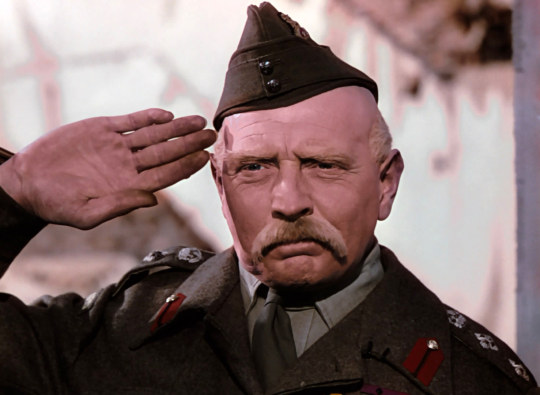
The Life and Death of Colonel Blimp (1943)
In these days of social isolation, domestic distractions, and pandemic, rare is the feature film that I watch at home in one sitting. Michael Powell and Emeric Pressburger’s The Life and Death of Colonel Blimp might have confused me in its opening half-hour but, in the end, commanded my attention for all of its one hundred and sixty-three minutes*. It is a film made during a time of crisis now fading from living memory, from British filmmakers reveling in their work’s Britishness. During Colonel Blimp’s wartime production and release, Britain was under existential threat from the Nazis, despite the opening of the North African front and apparent British victory in defending its airspace. A gentleman's war this was not, if ever such a thing existed. British cinema reflected those beliefs of the nation staring down its own annihilation, as the industry set to work on patriotic, if not propagandistic, movies.
There is no denying that Powell and Pressburger’s The Life and Death of Colonel Blimp has elements of propaganda. The film, so resistant to any categorizations by genre (including comedy, drama, epic, romance, war), has no qualms that Britain is fighting a just war against Nazi Germany. But there are moments that must have given British Prime Minister Winston Churchill – who attempted to halt Colonel Blimp’s production and distribution – pause. Powell and Pressburger raise questions towards the justifications and necessity of past British wars, the idea of warfare as a noble exercise, and introduces a “good German” character. Colonel Blimp’s genre-bending and provocative queries into Britain’s militant soul represents the most breathtaking balancing act in any of Powell and Pressburger’s movies.
The Life and Death of Colonel Blimp takes place over three time periods, each in a different setting:
Boer War (the common name for what is technically the Second Boer War): 1902 in Berlin, far from the violence in southern Africa
World War I and between the World Wars: from November 1918-1935 between the Western Front and postbellum Britain
World War II: from 1939 through the Battle of Britain (1940), mostly in the London area
The film begins near its chronological conclusion, when the rotund, mustachioed, Major-General Clive Wynne-Candy (Roger Livesey; whose role is modeled off of the “Colonel Blimp” comic strip character’s appearance and mannerisms) is surprised to be “captured” by Lieutenant Spud Wilson (James McKechnie) during a premature training exercise. Candy, who is trying to enjoy his afternoon at his favorite Turkish bath, is outraged at Wilson’s disregard to the exercise’s rules, and fisticuffs break out. From here, Colonel Blimp flashes back to Candy’s service in the Boer War and sticks to a strict chronology. Then-Lt. Candy is in Berlin, on leave from his service in the Boer War. There, he has a series of misadventures (and a love triangle) involving Edith Hunter (Deborah Kerr in one of three separate roles she plays) and an officer from the Imperial German Army named Theo Krestchmar-Schuldorff (Anton Walbrook). All three become friends while in Berlin; Theo and Edith become engaged shortly before Candy must leave Berlin.
We never see Edith (who stays in Germany with Theo) again in Colonel Blimp, but Theo – even though his time with Candy was relatively brief – remains friends with Candy. That friendship, however, conflicts against and interweaves into his German patriotism. Theo’s patriotism is not unconditional: he believes fervently in the aims of Imperial Germany in World War I’s immediate aftermath, but flees Hitler’s Nazi regime for soil his wife once called home. Taking account of all English-language cinema, he becomes a rare “good German”. In a person that a xenophobic British person might consider the enemy, we see a man heartbroken for the fate that befalls his native country and the violence waged against his adopted one.
Take the cruelly ironic scene of Theo visiting Candy after being released from a prisoner of war (POW) camp, as he ingratiates himself with Candy’s British dinner guests. Candy’s friends remark that British hospitality and organization must have eased the lives of the POWs, and the insinuate that British-German tensions shall soon wane. Germany will soon recover from the war, the dinner guests maintain. Notice Anton Walbrook’s physical acting here, acting as a man too polite to belabor his fellow guests with his sadness for his country and the anger of their presumptuous predictions. The Austrian actor, perhaps best known as Boris Lermontov from The Red Shoes (1948), provides a stupendous performance, most likely the widest-ranging one of his career. He inhabits his character’s contradictions of all three eras: the martial rigidity and playfulness of his Boer War-era youth, the defiance and disappointment following the Great War, and the sadness and pent-up fury of his elderly years. This is quite demanding for any actor, let alone someone who is nominally in a supporting role. Yet, a particular interview scene might represent the best piece of acting in any Powell and Pressburger picture. Walbrook performs spectacularly, with never a wasted motion or a dull moment from him.
Personal change comes much more slowly to Lieutenant-later-General Candy. This is as much for the purposes of the film’s chronological drama as it is a product of World War II-era remembrance. At this time in British filmmaking, one could not make narrative art deemed too critical of Britain’s bloody past – whether colonial or against its European rivals. For a film that engages so vigorously in a discourse concerning jus in bello, it portrays zero wartime violence. Meditations of war arrive solely in conversation, never action. In Candy’s indefatigable Britishness, The Life and Death of Colonel Blimp affirms his views that the Boer War and World War I were and are just conflicts, fought justly. He does not thirst for violence, nor does he dismiss the traumas war brings to combatants and civilians alike (he may downplay those traumas, though). Candy’s flawed introspection and stubbornness are endearing, at first. As time progresses, those qualities come ever into conflict with the changing nature of warfare and the contexts of the war currently waged. Britain is and will always be above committing war atrocities, Candy believes (you can roll your eyes; it is the least you should do after reading those last few words), and Nazi Germany’s tactics will never succeed in the face of Britain’s upstanding military. Such thinking was outdated even then, and only through his friendship with Theo does he consider how wrong he is.
Roger Livesey might not have been Powell and Pressburger’s first choice as Candy (that would be Laurence Olivier, who probably would have made Candy a more sophisticated character), but he embodies a contradictory gruffness and gentleness that weaves between military and civilian life. Those qualities are on full display when Livesey captures the attention of Deborah Kerr’s characters. In addition to Walbrook’s turn as Theo, Livesey and Kerr offer wonderful performances that cement the film’s Britishness. Through the three eras covered in The Life and Death of Colonel Blimp, Candy’s relationship with these women evolves as he ages, as the nature of the Britain’s conflicts make romance unwise. Kerr’s three characters might have different life interests, romantic inclinations, and temperaments, but their similar appearances – no coincidence, as the viewer later learns – anchor Candy to a perpetual past.
The striking Technicolor photography from Georges Périnal (1930’s Under the Roofs of Paris, 1948’s The Fallen Idol) with assistance from Jack Cardiff (1947’s Black Narcissus, 1951’s The African Queen) and production design from Alfred Junge (Black Narcissus, 1953’s Knights of the Round Table) makes The Life and Death of Colonel Blimp one of the most arresting Technicolor productions ever. The vibrancy of the colors leap from the screen – even the gray interiors of modern buildings and the browns of the World War I trenches and wooden panels of Candy’s estate. One crane shot of Candy and Theo during their first encounter – a swordsmen’s duel inside a cavernous hall, away from the freezing storm outdoors – and the fade into the shot of a building model gives the film the feel of an oral history where the most dynamic moments can never be truly captured. Those moments of action blur into Candy’s memory, as tangible now as the buildings inside a snow globe. The Life and Death of Colonel Blimp might not have the dedication to visual leitmotif as The Red Shoes does, but its visual interest outstrips all but the most masterful Technicolor pictures of the 1940s.
British Prime Minister Winston Churchill was cognizant of the buffoonish Colonel Blimp and, in addition to Lieutenant-later-General Candy, believed the characters were modeled after his appearance and behavior. Furthermore, considering how Powell and Pressburger imbued Theo with such humanity, Churchill – who had only read of the filmmakers’ preliminary plans for their film and never saw any footage – believed that The Life and Death of Colonel Blimp would only undermine morale for the war effort. In response, Churchill directed his Minister of War, Sam James Grigg, to suppress the picture to the extent that he could. Grigg denied Powell and Pressburger access to matériel, but the filmmakers had friends in the correct places to procure military uniforms, vehicles, and weapons necessary for their production. Despite Powell and Pressburger’s resourcefulness, Churchill succeeded in preventing the international distribution The Life and Death of Colonel Blimp for at least one year after its 1943 release. The film’s American debut would not occur until March 1945. For the American release, the film lost thirteen minutes of its 163-minute runtime; television screenings further reduced the work to ninety minutes up until the mid-1980s.
The Life and Death of Colonel Blimp might not seem like accessible viewing. This is a tale of an aging British military officer clinging to the ideals of his militaristic youth, long after when such ideals had purpose, let alone meaning to the young people of his present. It is rooted deeply into early twentieth century British culture, with an opening that might only serve to confuse a new viewer as it transitions to flashbacks. However, like any Powell and Pressburger film (and this might not even be the duo’s best work), there is much to offer. This is a love story, with love shown in various forms: for the first true love of Candy’s life, for the man who should be his enemy, for country. The genre gymnastics on display – a war film with nary any war violence; a romance without torrents of romance; a comedy without boisterous belly laughs – allow any caring viewer to witness General Candy grow into his times, all while retaining traces of a self that no longer is. That growth is subtle, but enveloping. His story feels like the origins of present-day Britain, its empire slipping away, wresting with a world no longer bowing in deference. As we must guard against the unexamined life, so too, Candy realizes, must he.
My rating: 10/10
^ Based on my personal imdb rating. The Life and Death of Colonel Blimp is the one hundred and sixty-fifth feature-length or short film I have rated a ten on imdb. My interpretation of that ratings system can be found in the “Ratings system” page on my blog (as of July 1, 2020, tumblr is not permitting certain posts with links to appear on tag pages, so I cannot provide the URL).
*The longest film I have seen in one interrupted sitting at home was Lawrence of Arabia (1962), in all its 227-minute glory.
For more of my reviews tagged “My Movie Odyssey”, check out the tag of the same name on my blog.
#The Life and Death of Colonel Blimp#Powell and Pressburger#Michael Powell#Emeric Pressburger#Roger Livesey#Deborah Kerr#Anton Walbrook#Ursula Jeans#James McKechnie#Georges Perinal#John Seabourne Sr.#Jack Cardiff#TCM#My Movie Odyssey
19 notes
·
View notes